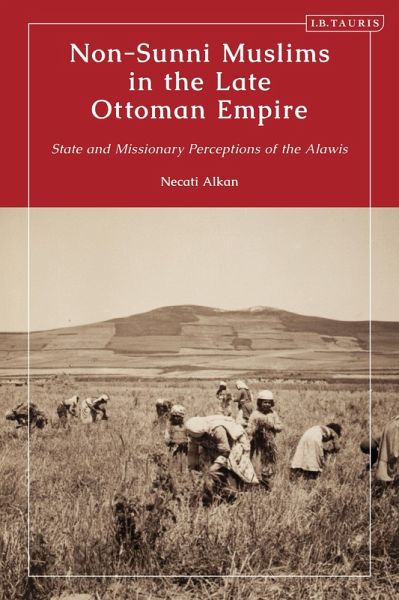
Non-Sunni Muslims in the Late Ottoman Empire (eBook, PDF)
State and Missionary Perceptions of the Alawis
Versandkostenfrei!
Sofort per Download lieferbar
24,95 €
inkl. MwSt.
Weitere Ausgaben:

PAYBACK Punkte
12 °P sammeln!
The Alawis or Alawites are a minority Muslim sect, predominantly based in Syria, Turkey and Lebanon. Over the course of the 19th century, they came increasingly under the attention of the ruling Ottoman authorities in their attempts to modernize the Empire, as well as Western Protestant missionaries. Using Ottoman state archives and contemporary chronicles, this book explores the Ottoman government's attitudes and policies towards the Alawis, revealing how successive regimes sought to bring them into the Sunni mainstream fold for a combination of political, imperial and religious reasons. In t...
The Alawis or Alawites are a minority Muslim sect, predominantly based in Syria, Turkey and Lebanon. Over the course of the 19th century, they came increasingly under the attention of the ruling Ottoman authorities in their attempts to modernize the Empire, as well as Western Protestant missionaries. Using Ottoman state archives and contemporary chronicles, this book explores the Ottoman government's attitudes and policies towards the Alawis, revealing how successive regimes sought to bring them into the Sunni mainstream fold for a combination of political, imperial and religious reasons. In the context of increasing Western interference in the empire's domains, Alkan reveals the origins of Ottoman attempts to 'civilize' the Alawis, from the Tanzimat period to the Young Turk Revolution. He compares Ottoman attitudes to Alawis against its treatment of other minorities, including Bektashis, Alevis, Yezidis and Iraqi Shi'a. An important new contribution to the literature on the history of the Alawis and Ottoman policy towards minorities, this book will be essential reading for scholars of the late Ottoman Empire and minorities of the Middle East.













